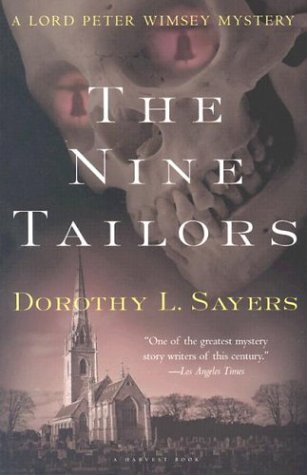 |
| Marriage certificate from a Bible |
I
think it's very clear in scripture that when God instituted marriage He
specified it to be between a man and a woman. I also don't think it's
in the best interests of America to change our traditional understanding
of marriage. But I do think it might be of benefit to the Christian
church if the federal government recognizes gay marriage. My reasoning
on this is a little different from what I've heard elsewhere so I want
to lay it out:
"Oh, come!" expostulated his lordship. "Isn't it obvious? I show Mrs. Thoday the cipher. On Sunday morning neither she nor her husband attends Holy Communion. On Monday they depart to London by the first train. My dear Watson, it's staring you in the face. The only real danger is------""Well?""The Archbishop of Canterbury. A haughty prelate, Blundell. An arbitrary prince. But I don't suppose they'll think of him.""Oh, indeed! And how about Mr. Mussolini and the Emperor of Japan?""Negligible. Negligible," replied his lordship, with a wave of the hand. "Likewise the Bishop of Rome. But get on to it, Blundell, get on to it."
-Dorothy Sayers "The Nine Tailors"
In
the above passage Blundell doesn't think that the Archbishop can have
anything to do with his murder investigation. But Lord Peter knows that
he can. Two of his suspects have realized they are not legally married
and Peter want to catch them before they change that and gain protection
against having to testify against each other. And the only person who
can give them a license to get married without a waiting period is a
bishop of the Church of England. This is because the tradition of
English common law recognized the canon law status of marriage as
something that had consequence in civil law.
This
worked, more or less, because England had an established church. As
English law increased in sophistication they made special provision for
minorities like Jews and Quakers but for the most part they left
regulation and recording marriages to the church for a long time. That
was certainly the state of affairs when America was getting colonized.
But in America the question of churches was more complicated.
So
states recorded marriages that took place and the churches were happy
with that as they generally recognized each others marriages as valid
even when they weren't speaking to each other. So the churches drifted
into thinking that the legal status confirmed by the state was what was
meant by a sacred marriage. When the state started granting divorces
whenever someone wanted out of a marriage and otherwise debasing marriage, many church's officially stated these divorces were
morally wrong. But since we kept using the state's registry as the
standard for marriage we were forced to accept the state decreed divorces and remarriages as a fait accompli in practice.
There
have been some stirrings that indicate some pastors are thinking we
need to do something to better reflect religious marriage, but a lot
more than this is needed. And if gay marriage becomes generally
recognized there will be state registered marriages that are obviously
on their face not what conservative churches mean by marriage. This
could be the catalyst needed to get churches to start withdrawing from civil marriages.
It's
been noted in the gay marriage debate that gay couples can get many of
the benefits of marriage by entering into various types of legal
contracts. There is no reason heterosexual couples couldn't do the same
thing. And various denominations and conventions could invest in drawing
up contracts that more closely reflected their religious beliefs. In
the Internet age it would be quite possible for churches to record and
track religious marriages without needing the states help.
This
could be incredibly strengthening for churches that were willing to
champion traditional covenant marriages. It would help clarify and
exhibits their stance to the society in general. It would encourage
inter church dialog as they worked out whether and how to recognize each
other's religious marriage. And most importantly the marriages within
the church would be more stable, strengthening the church from the
inside out.

No comments:
Post a Comment